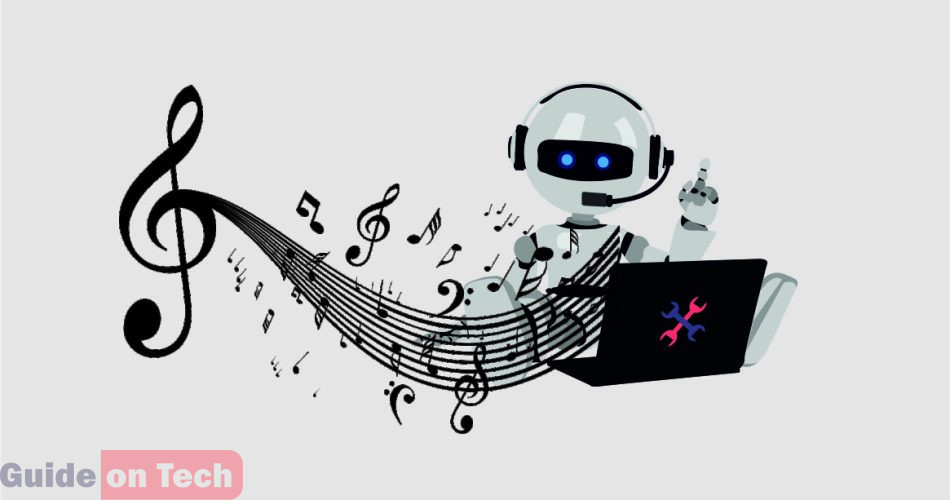Artificial intelligence (AI) is revolutionizing the music industry, offering new ways to create, produce, and distribute music. From automated composition and music analysis to personalized recommendations and virtual concerts, AI is transforming the way we experience and enjoy music. In this article, we will explore how AI is used in the music industry and provide examples of AI companies and websites that are leading the way.
AI in Music Composition and Production
One of the most exciting applications of AI in the music industry is composition and production. AI can analyze vast amounts of music data and create original compositions that sound like they were composed by a human. AI can also assist in the production process, including mixing, mastering, and sound design. Here are some examples of AI companies and websites that are using AI in music composition and production:
AIVA (Artificial Intelligence Virtual Artist)
AIVA is an AI-powered composer that creates original music in various genres and styles, including orchestral, electronic, and pop. AIVA’s algorithm analyzes a database of over 30,000 music scores and can compose music in real-time based on the user’s input. AIVA’s music has been used in films, commercials, and video games.
Amper Music
Amper Music is an AI-powered music production platform that allows users to create custom music tracks for their projects. Amper’s algorithm analyzes the user’s input, such as the mood, genre, and tempo, and generates a music track that matches the user’s criteria. Amper’s music has been used in TV shows, commercials, and video games.
Landr
Landr is an AI-powered mastering tool that can enhance the sound quality of music tracks. Landr’s algorithm analyzes the music track and applies various mastering techniques, such as EQ, compression, and stereo widening, to improve the sound quality. Landr’s mastering tool is used by musicians, producers, and record labels.
AI in Music Analysis and Recommendation
AI can also analyze and understand music in ways that were previously impossible. It can analyze music metadata, such as tempo, key, and genre, and use this data to make personalized music recommendations. I can also analyze audio data, such as melody, rhythm, and harmony, and use this data to classify and compare music. Here are some examples of AI companies and websites that are using AI in music analysis and recommendation:
Spotify
Spotify is a music streaming platform that uses AI to make personalized music recommendations for its users. Spotify’s algorithm analyzes the user’s listening history and behavior, such as their favorite genres, artists, and songs, and uses this data to recommend new music that the user might like. Spotify’s algorithm also analyzes the audio data of music tracks and categorizes them into various genres and subgenres.
Shazam
Shazam is a music identification app that uses AI to recognize and identify music tracks. Shazam’s algorithm analyzes the audio data of a music track and matches it to a database of over 11 million songs. Shazam can also provide lyrics, artist information, and related music recommendations for the identified song.
Musiio
Musiio is an AI-powered music discovery and curation platform that uses AI to classify and compare music tracks. Musiio’s algorithm analyzes the audio data of music tracks and categorizes them into various genres and subgenres. Musiio can also identify the key components of a music track, such as melody, rhythm, and harmony, and use this data to make personalized music recommendations.
AI in Live Performances and Virtual Concerts
AI is also transforming live performances and virtual concerts by offering new ways to interact with music and musicians. It can create immersive and interactive experiences, such as virtual reality concerts and AI-generated visuals. it can also assist musicians in their performances by providing real-time analysis and feedback. Here are some examples of AI companies and websites that are using AI in live performances and virtual concerts:
Wave
Wave is an AI-powered virtual entertainment company that creates immersive and interactive virtual concerts. Wave’s technology uses motion capture and machine learning to create lifelike avatars of musicians and performers. Wave’s virtual concerts offer new ways to interact with music, such as dancing with virtual crowds and controlling the visuals with hand gestures.
Sibelius
Sibelius is an AI-powered music notation software that can analyze and transcribe music in real time. Sibelius’s technology can analyze audio data and transcribe it into music notation, making it easier for musicians to create and edit their music. Sibelius can also provide real-time feedback on the accuracy and timing of a musician’s performance.
Aumeo
Aumeo is an AI-powered audio personalization device that can analyze and optimize the sound quality of music in real time. Aumeo’s technology can analyze a person’s hearing profile and adjust the sound settings of their headphones or speakers to match their unique hearing abilities. Aumeo’s technology can also enhance the sound quality of live performances by optimizing the sound settings for the venue and the audience.
Benefits and Challenges of AI in the Music Industry
AI offers many benefits to the music industry, including increased efficiency, creativity, and personalization. AI can automate repetitive tasks and provide new ways to create and distribute music. It can also offer personalized recommendations and experiences, making it easier for listeners to discover new music and engage with their favorite artists. However, AI also poses several challenges to the music industry, including concerns about copyright, ownership, and authenticity. As AI technology advances, it is important for the music industry to address these challenges and ensure that AI is used ethically and responsibly.
Conclusion
AI is transforming the music industry, offering new ways to create, produce, and distribute music. From automated composition and music analysis to personalized recommendations and virtual concerts, AI is changing the way we experience and enjoy music. In this article, we have explored how AI is used in the music industry and provided examples of AI companies and websites that are leading the way. As AI technology continues to evolve, it is exciting to see how it will shape the future of music.

